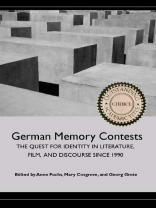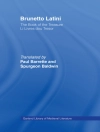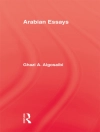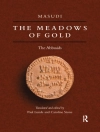Essays shedding light on the increasingly open cultural debate on the German past.
Since unification in 1990, Germany has seen a boom in the confrontation with memory, evident in a sharp increase in novels, films, autobiographies, and other forms of public discourse that engage with the long-term effects of National Socialism across generations. Taking issue with the concept of ‘Vergangenheitsbewältigung, ‘ or coming to terms with the Nazi past, which after 1945 guided nearly all debate on the topic, the contributors to this volume view contemporary German culture through the more dynamic concept of ‘memory contests, ‘ which sees all forms of memory, public or private, as ongoing processes of negotiating identity in the present. Touching on gender, generations, memory and postmemory, trauma theory, ethnicity, historiography, and family narrative, the contributions offer a comprehensive picture of current German memory debates, in so doing shedding light on the struggle to construct a Germanidentity mindful of but not wholly defined by the horrors of National Socialism and the Holocaust.
Contributors: Peter Fritzsche, Anne Fuchs, Elizabeth Boa, Stefan Willer, Chloe E. M. Paver, Matthias Fiedler, J. J. Long, Dagmar C. G. Lorenz, Cathy S. Gelbin, Jennifer E. Michaels, Mary Cosgrove, Andrew Plowman, Roger Woods.
Anne Fuchs is Professor of modern German literature and Georg Grote is Lecturer in German history, both at University College Dublin. Mary Cosgrove is Lecturer in German at the University of Edinburgh.
Jadual kandungan
Introduction: Germany’s Memory Contests and the Management of the Past – Anne Fuchs and Mary Cosgrove
What Exactly Is
Vergangenheitsbewältigung? Narrative and Its Insufficiency in Postwar Germany – Peter Fritzsche
The Tinderbox of Memory: Generation and Masculinity in Väterliteratur by Cristoph Meckel, Uwe Timm, Dagmar Leupold, and Ulla Hahn Dagmar Leupold, and Ulla Hahn – Anne Fuchs
Telling It How It Wasn’t: Familial Allegories of Wish-Fulfillment in Postunification Germany – Elizabeth Boa
Being Translated: Exile, Childhood, and Multilingualism in G.-A. Goldschmidt and W. G. Sebald – Stefan Willer
‘Ein Stück langweiliger als die Wehrmachtsausstellung, aber dafür repräsentativer’: The Exhibition Fotofeldpost as Riposte to the ‘Wehrmacht Exhibition’Exhibition’ – Chloe Paver
German Crossroads: Visions of the Past in German Cinema after Reunification – Matthias Fiedler
Monika Maron’s
Pawels Briefe: Photography, Narrative, and the Claims of Postmemory – Jonathan Long
Imagined Identities: Children and Grandchildren of Holocaust Survivors in Literature – Dagmar C. G. Lorenz
Of Stories and Histories: Golem Figures in Post-1989 German and Austrian Culture – Cathy Gelbin
Multi-Ethnicity and Cultural Identity: Afro-German Women Writers’ Struggle for Identity in Post-Unification Germany Germany – Jennifer E. Michaels
The Anxiety of German Influence: Affiliation, Rejection, and Jewish Identity in W. G. Sebald’s Work – Mary Cosgrove
Between ‘Restauration’ and ‘Nierentisch’: The 1950s in Ludwig Harig, F. C. Delius, and Thomas Hettche – Andrew Plowman
On Forgetting and Remembering: The New Right since German Unification – Roger Woods
Mengenai Pengarang
Mary Cosgrove is Professor in German at Trinity College Dublin. Her research and teaching foci include Holocaust memory and representation in literature and culture; German Jewish writing; the cultural history and theory of melancholia and boredom in European letters; and literaryand narrative economics. Key publications include Born under Auschwitz: Melancholy Traditions in Postwar German Literature (Camden House, 2014); German Memory Contests: The Quest for Identity in Literature, Film, and Discourse since 1990 (Camden House, 2006; paperback 2010).












